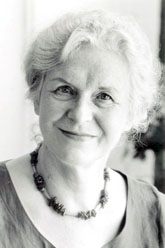"People's assumptions take much longer to change than their opinions. We don't know what assumptions we are harbouring even if we have correct opinions", observes Dame Gillian Beer, literary critic and author. A pioneer in developing and renewing debates, particularly about the assumptions that bring together scientists and humanists, Beer has been called one of the most brilliant scholars of nineteenth century English culture and Modernism. Examining disparate subjects such as Darwinism, wave theory, physics, psychoanalysis, WWII, women's writing, and music under the aegis that ideas cannot continue to thrive when locked away, Beer looks for discursive moments of interchange rather than origins. There is no one-way traffic of scientific to literary discourses. Instead, Beer prefers a model of transformation rather than translation, and studies patterns of imaginative encounter and engagement, emphasizing that ideas are resisted, challenged, and modified, as much as assimilated.
Recently retired and King Edward VII Professor at the University of Cambridge, her most influential work is on the exchanges between literature and science, and the broader implications and challenges of interdisciplinary studies.
Her lauded book, Darwin's Plots (1983, 2nd ed 2000), examines how in the most important text of modern biology--his Origin of Species--Charles Darwin overturned fundamental cultural assumptions about fiction and science by revising stories that he inherited from writers as diverse as Lucretius, Shakespeare and Wordsworth. She also reveals how major English novelists pursued and resisted the implications of Darwin's narratives, and how the stories he produced about natural selection and the struggle for life now underpin our culture.
Dame Gillian's subsequent work examines how literature and science confront the essential problem of how to depict the world without allowing that depiction to be predetermined by the very methods and tools of description. Published titles include George Eliot and Nineteenth Century Fiction (1983); Arguing with the Past (1989), Forging the Missing Link (1992), Open Fields: Science in Cultural Encounter (1996) and Virginia Woolf: the Common Ground (1996). Her current project, Alice in Space, offers an exploration of how Lewis Carroll played with new ideas in non-Euclidian geometry to create Alice in Wonderland and Through the Looking Glass, while her Experimental Islands explores the importance of islands in Victorian thought and literature. Dame Gillian has authored over 48 articles and edited 10 books; her latest edition of Freud's The Wolfman and Other Case Histories is forthcoming from Penguin.
Dame Gillian has lectured worldwide, holds several honorary degrees from universities including Oxford and University de Paris Sorbonne, and has been awarded medals by M.I.T., St. Andrews University and the National Autonomous University, Mexico City. She is also a Fellow of the British Academy, as well as an honorary member of the American Academy of Arts and Sciences. Gillian Beer became a Dame Commander of the Order of the British Empire (DBE) in 1998.


